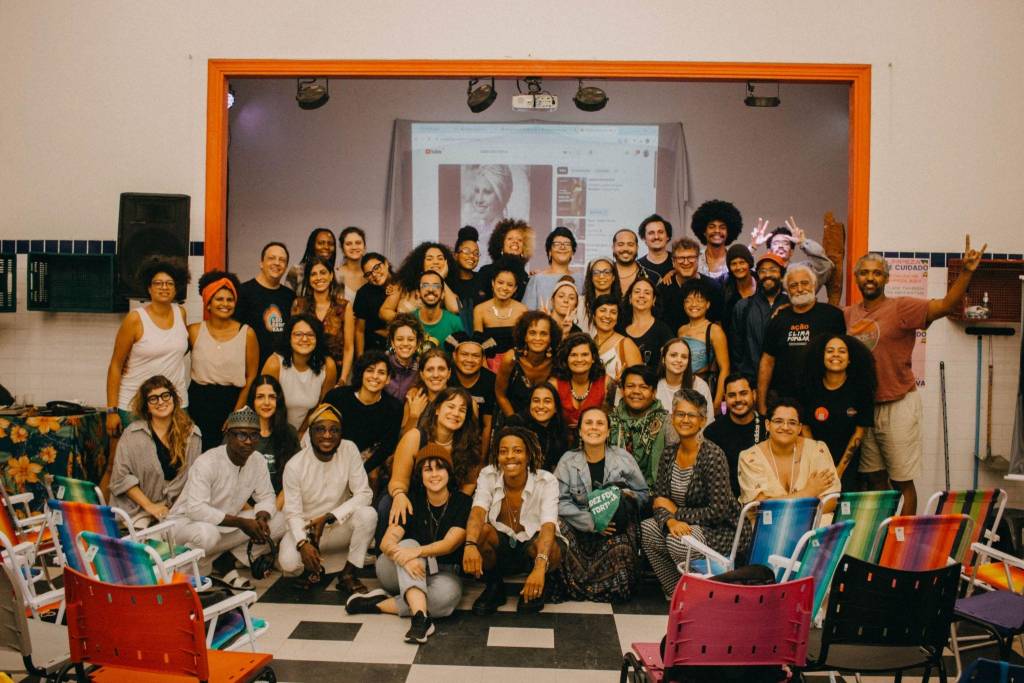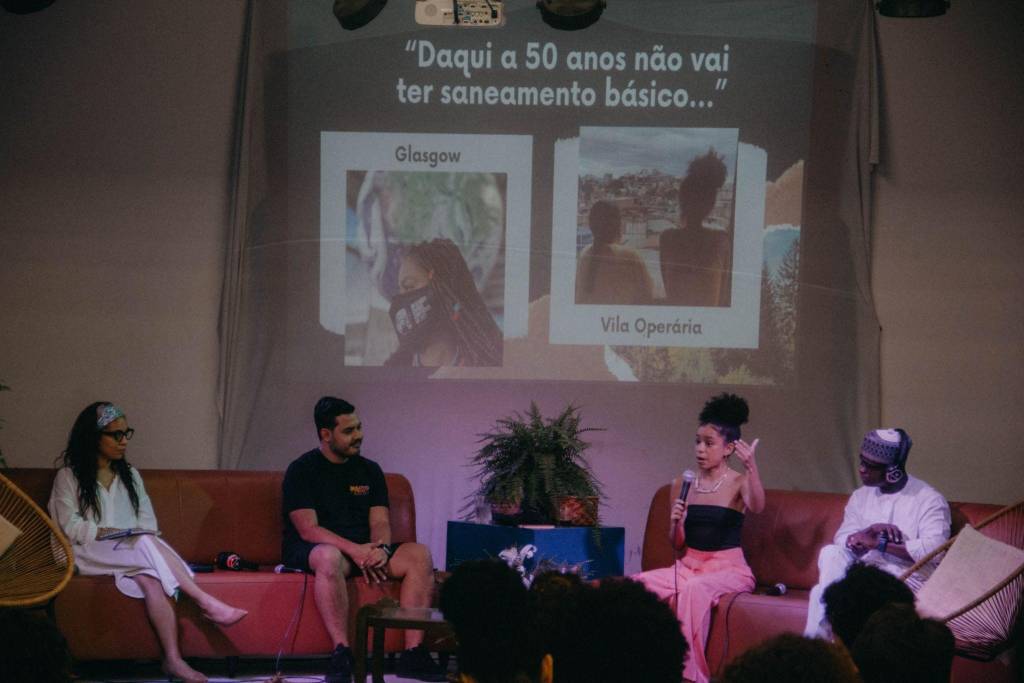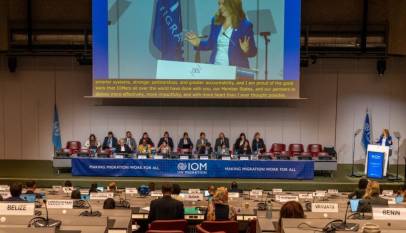OP-ED | Climate Narratives Lab: The Global South at the Center of Solutions for Good Living, By Nasreen Al-Amin and Georgia Nicolau
Nasreen Al-Amin, Founder of Surge Africa Organisation and Georgia Nicolau, Founder of Instituto Procomum, reflect on their 4-day joint Climate Narratives Lab event in Santos, São Paulo, which focused on the role of the Global South in climate solutions and narrative building.

In one of the statues along the coast of the city of Santos, in São Paulo, we see Father José Anchieta portrayed in a grandiose manner and an indigenous man crouching at his feet. It is estimated that there were between 600 and 1,000 different ethnic groups when the Portuguese arrived in Brazil, with the current census accounting for 270 ethnic groups.
The statue demonstrates that the most effective way to make a way of life dominant is to exterminate, repress, or rape other forms of life.
When we talk about worldview, this is what we are talking about. There were many worldviews that inhabited the world before the process of colonization of the majority of the world by the European powers. The fact that one worldview has become hegemonic is also the reason we have gotten to where we are.
The climate crisis is above all a crisis of a way of thinking and acting. It is the result of assumptions that shape our choices as a society. A view that nature is inanimate and at our disposal. And yet, the discussion about climate change often stops at technocracy. How can we then expand our understanding of ways of life, since the one we live is just a possibility?
The same countries that were colonized are also those that emit the least carbon dioxide, the main component of global warming. Countries outside Europe that had natural resources became cursed. As writer Amitav Ghosh tells it, the island of Bantam, where nutmeg was born, went from being a gift of nature to a colonial curse and the reason for the murder of thousands of people and the ruin of a territory, a people, a place, a language, a way of being.
Last year, we were at a roundtable with industry colleagues on Pan-Africanism and the principles that should or should not underpin this ideology. Many contributed, but we had difficulty agreeing that this versatile and diverse ideology should be restricted only to the borders of Africa.
We believe if effectively implemented, the concept of Pan-Africanism can build bridges and disrupt social and cultural systems in a way that amplifies the voices, impact and identity of Africans both within and beyond the continent. To achieve this, we must reach out to the peoples and cultures with whom we share intrinsic similarities in terms of social norms, political and historical struggles, and aspirations for a better world.

In this vein, Surge Africa’s partnership with Instituto Procomum, supported by Urban Movement Innovation Fund (UMI Fund), puts things into perspective. This unprecedented action of simply bringing together allies from Nigeria and Brazil represents the coming together of two continents with diverse yet similar culture, history, social structure, religions and endless possibilities of what can be achieved through strategic partnerships and collaboration.
For us at Surge Africa and the Procomum Institute, the goal is to shape a global majority movement together with our allies, where grassroots voices and activists from across the Global South can access opportunities, reinvent concepts, and create new ideas around social structures, and inclusive governance that integrates sustainable and inclusive development.
At the heart of this are cultural organizations that shape narratives and amplify grassroots struggles through cultural and knowledge exchange, campaigns, deliberate and strategic communication, ensuring that our vision for change is well illustrated to define the future we want.
The event themed “Climate Narratives Lab: The Global South at the Center of Solutions for Good Living” is a call to expand understanding of the problem. We believe that solidarity and cooperation between peoples, territories and communities, and the meeting of knowledge that this generates, is what will take us further. Researchers, along with public managers, community leaders, localized experiences that can be disseminated.
We can no longer just think globally and act locally, we need to think and act globally and locally. Thinking about solutions for us is above all thinking about forms of organization, other institutionalities where non-hegemonic knowledge plays a preponderant role and where power is effectively distributed. Once the rules are clear, then we can talk about policies, as we will have shared information, resources and decisions.
Nasreen Al-Amin is the Founder and Director of Surge Africa while Georgia Nicolau is the General Director of the Procomum Institute.













